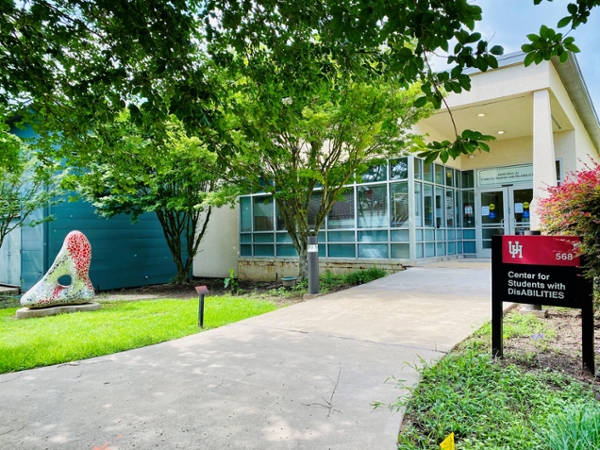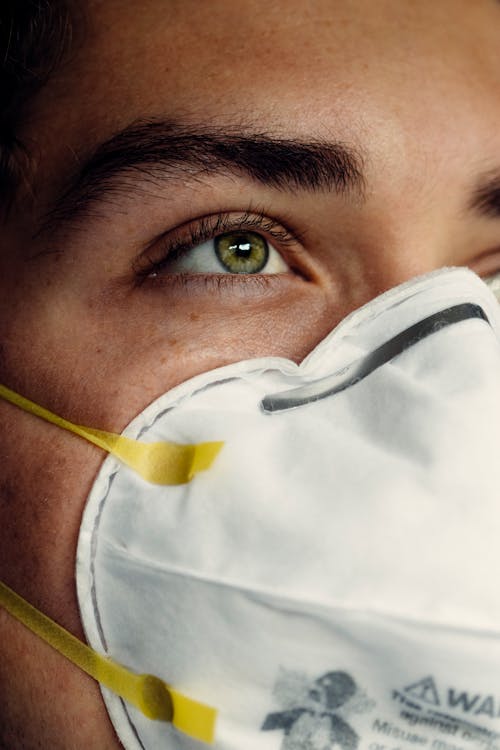
The students spoke, and we listened.
In 2003, the UH honored one of its most distinguished alumni and the “godfather” of the Americans with Disabilities Act by naming a center after him: The Justin Dart, Jr. Center for Students with DisABILITIES.
This center was the first space specifically designed for students with disabilities at any major Texas university, and it was the only center in the country that honored Dart’s legacy of advocating for diversity, inclusion, and the ADA by bearing his name.
But what was empowering nearly two decades ago didn’t seem that way to students of today. The all-caps emphasis on “abilities,” students said, did not reflect a current celebration of diversity and inclusion, and that it implied there was something negative about having a disability.
So on the 31st anniversary of the passage of the ADA, after research and a lot of student input, the center got a new name: the Justin Dart, Jr. Student Accessibility Center.
Kyle Mutz, who was named the new director of the center in October, said he’s excited to be part of this new future for the Dart Center.
“The new Dart Center will focus on empowering students with disabilities with knowledge, excellent services, supportive academic environments, and work to engage the campus community to build a foundation on inclusive environments for everyone at the University of Houston,” Mutz said. Mutz oversees a growing department that serves students who need accommodations or other support services for temporary or permanent health impairments, physical disabilities, mental health disabilities, and/or learning disabilities. Any student that is experiencing an access issue on campus that is related to a disability is encouraged to visit the Dart Center for additional information.
Mutz finds some shared experience with the Dart Center’s students and the disability community. “Growing up with a disability myself, I know how important and critical accessibility is for people,” Mutz said. “Creating inclusive and supportive environments benefits everyone on campus.”
Justin Dart, Jr. was also a member of the disability community, and he became one of the most renowned activists fighting for the rights of disabled people, even leaving a successful corporate career in the late 1960s to devote himself to his activism. Dart ultimately even became the vice chair of the National Council on Disability, and he is most renowned for his role in the passage of the ADA on July 26, 1990.
The number of students who have sought accommodations through the Dart Center in the past few years has more than doubled — and 250 new students registered with the Center from 2020 to 2021 — and the center has begun transforming its space and adding staff to better serve this growing UH student population.
Mutz is looking forward to meeting the needs of that growing student population. “We anticipate that with the name change, new staff, new leadership, building enhancements, and other changes we are hopeful this number will continue to increase,” Mutz said. “The Dart Center looks forward to serving
more students and ensuring they have access and events that work to create the most inclusive university experience possible.”
He said as the Dart Center adds more staff —they are currently interviewing candidates for several new positions — they plan to expand the services and events offered by the Dart Center, including adding some new programming.
“Currently we are working to plan a transition fair for juniors and seniors in high school who have disabilities,” Mutz said. “This event will have several informational workshops that include topics on advocacy, accommodations and services, and assistive technology, and a resource fair to help inform young people with disabilities what is at the university and community to help them be successful. In addition, there will also be an adaptive sport opportunity for students to experience. Other events will be a movie night for students to learn about various aspects of disability, culture and awareness.”
Since the name change, Mutz said, students have shared positive feedback about the new direction of the Dart Center. “The feedback so far from students has been very positive and encouraging,” he said. “Since the name change, hiring of the new director, changes to the building, the new and permanent staff being hired there is a lot of great energy by our staff to continue our collective efforts to make the Dart Center a destination and home for students with disabilities.”

